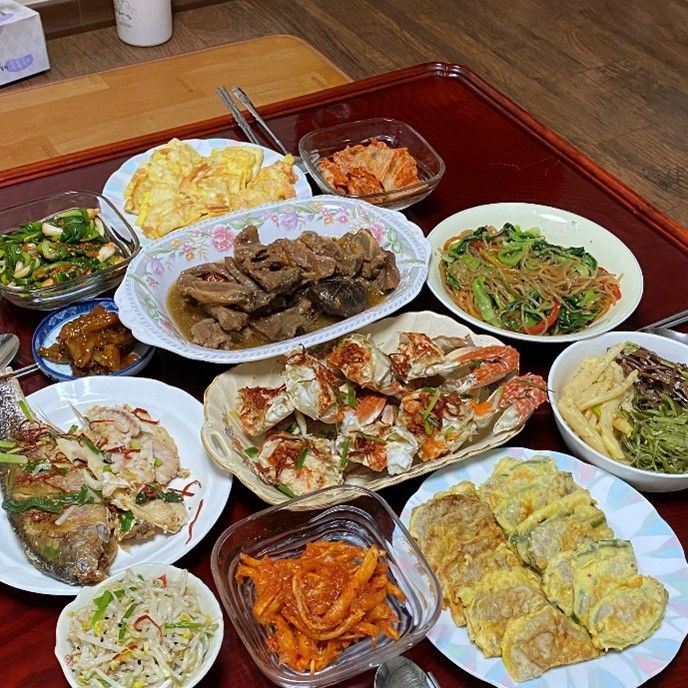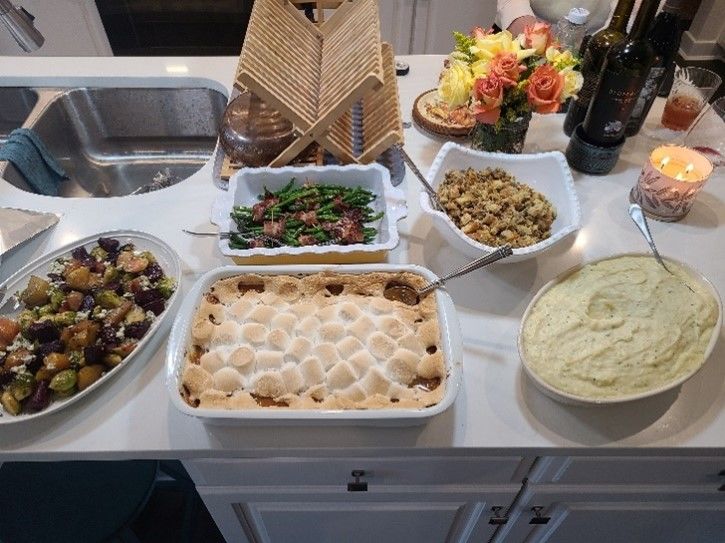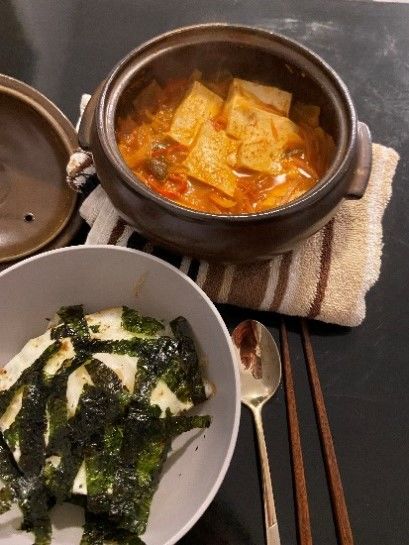November is a month with one of the most culturally significant holidays in the US: Thanksgiving Day. Some students returned home to meet their family whom they haven’t seen in a while. Still others, especially international students and exchange students who don’t have their family here with them, used the opportunity to go on a fancy trip to nearby states. As for me, I was invited to a Thanksgiving dinner by my roommate’s family (and I even bought Korean traditional fruit tea for them and beautifully wrapped it with Korean wrapping clothes Bojagi) but due to miscommunication, I wasn’t able to attend. Without having any family to visit nor the desire to plan a whole itinerary, I had no choice but to sit alone and think in my quiet and lonely dorm room, mostly about home and family. Loneliness hit me right in my face. Ouch.

But first, I cook a meal just for myself. I wonder if my roommate’s family is having a hearty Thanksgiving dinner all gathered around the table by now. While the only thing that keeps me company is my iPad with Netflix on. Windows next door that are usually lit are all pitch-black. Gosh, it feels like I’m the only one left in this building. This train of thought leads to the realization that I had already gone through similar emotions two months ago on Chuseok, otherwise known as Korean thanksgiving. My family would have gathered in Korea for a family dinner. Except for me, having instant rice for dinner all alone in a tiny room in this foreign land.
Returning home for the holidays, they say. How they are called and what food they share may differ but every holiday around the world looks similar to each other, in that it’s all about family getting together and sharing meals. In this sense, holidays mean something more than a day-off, especially in this contemporary world where individuals are fragmented, isolated from their families. Holidays reunite family members and family dinner is at the heart of it. Collective emotions and memories are attached to hearty meals made from family recipes. (That’s why having holiday dinner alone is bitter. Even if the dish is the same, it would just highlight the fact that you are not with your family at that moment.)

Yet, when I recall my memories related to holidays and family gatherings, it only gets harder to understand why I’m so sentimental over this. If you were raised in a strict, conservative family, you will get this ambivalent feeling. Thinking about family isn’t all rose-colored. Not at all. Rather, it makes me stressed and makes me want to run away from it. Similar sentiments arise when I think about the idea of home. Whenever asked if I missed my family and my country, I’ve been uncertain of my feelings because I think I’m supposed to feel homesick but weirdly I wasn’t. Where is this weird uncertainty coming from when it comes to the idea of family and home???
Korea feels “kinda” home, considering that it feels familiar to me and above all, I have people who support me there. Except for the fact that I was feeling constantly burnt out by the extremely competitive society, depressed by the ever-present social pressure to conform to the norm (that Korean Nunchi, or social sensitivity, can really get you), and fed up with daily doses of microaggression due to gender discrimination at “home”. How about Philadelphia then? Does this place feel like home to me? No one really cares whatever I do here. I feel much freer, but I know that it is far from utopia here either. Some casual racism and other societal issues to begin with. Besides, I don’t have any rich personal history or familiarity here. Then where would my home be?

Philadelphia and the US felt like an impeccable place at first but now I know that it won’t take long before painful memories and negative emotions would stack up in this land, too. I must admit that I’ve been idolizing the concept of home and family by imagining it to be a painless, antiseptic space. Now I realize that this will just lead me to repeated disappointment and uncertainty wherever I go. Maybe I’ll have to admit the brutal fact that I’ll be lonely until the day I die and there is no such thing as the perfect home. Be it Korea, the US, or even France or any other country in the world, the grass would always look greener on the other side. Then, sudden terror strikes me if I have been overlooking people and places I love right in front of me while I was obsessed with futile ideals. Time to stop myself from getting ahead of myself any longer and concentrate on the present.

